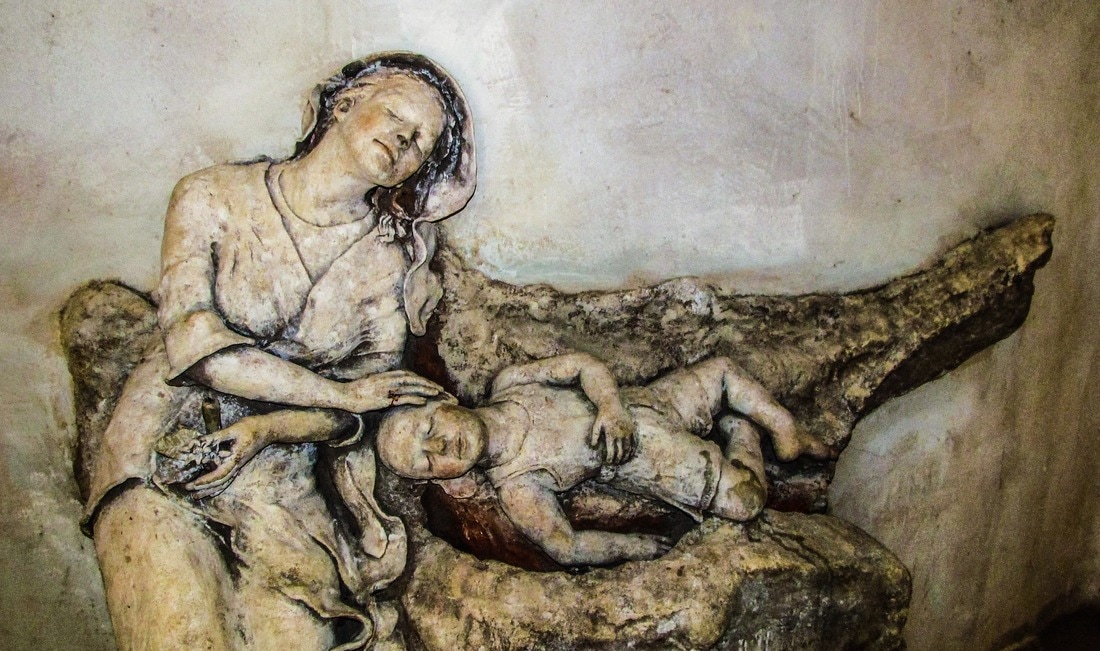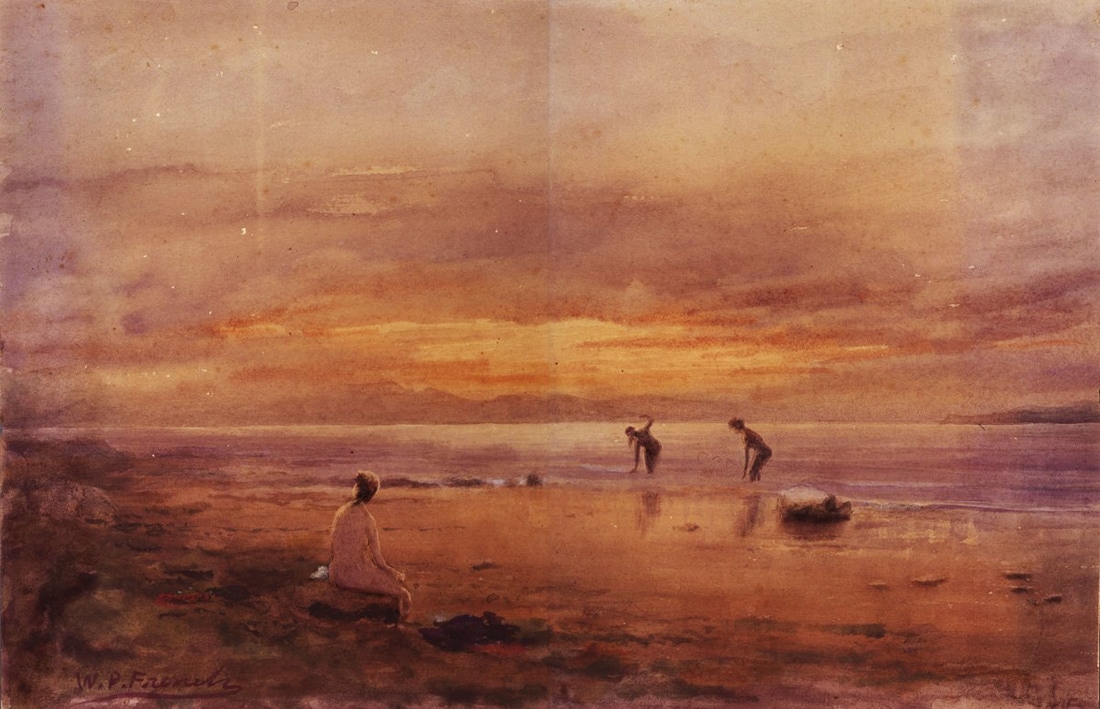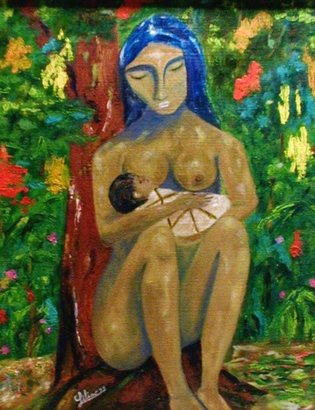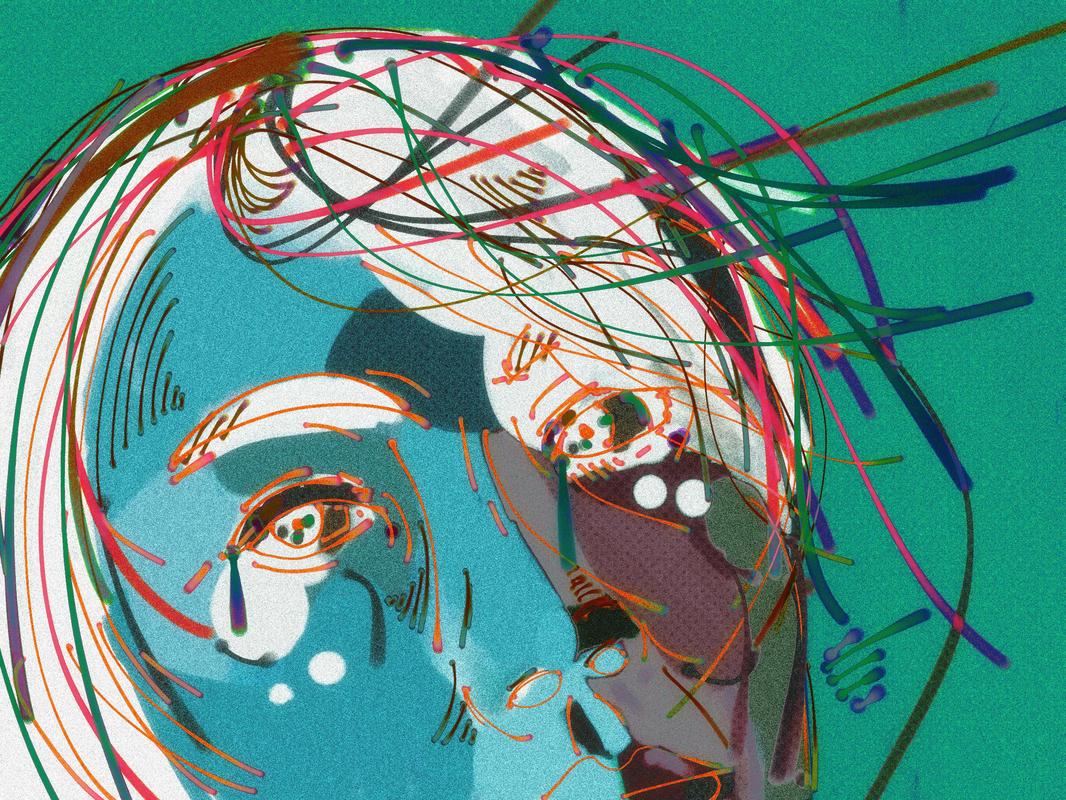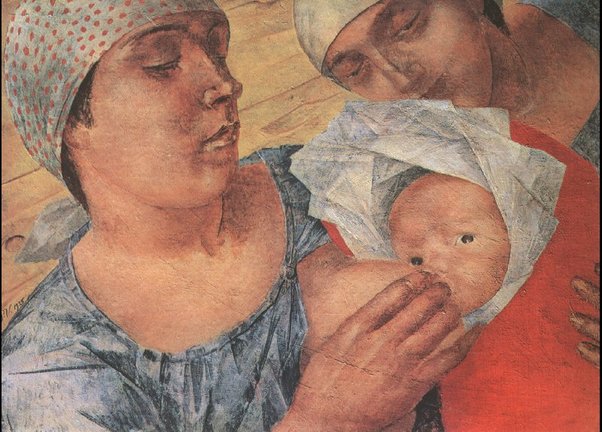|
At Home, Cambridge, Massachusetts
Recently a friend sent me a recommendation for a book written against the natural child birth movement. I haven’t read it, but whenever in life I actually have time to do so I want to read it along with the book I keep hearing about from the woman who started the natural childbirth movement on a farm. I’ve become pretty intrigued at trying to understand how these women come up with their philosophical positions concerning childbirth. On the one hand, the natural childbirth movement argues that the process is totally natural and should be left alone. On the other hand, the doctor writing the book my friend recommended argues that pain is not natural, nor is it considered a human good; therefore, the pain of childbirth should not be considered natural and something to leave unmedicated. Suffering is not something people should view as “normal” or “natural,” and we should attempt to alleviate the suffering a woman experiences in childbirth. I find this ideological divide fascinating, particularly for what it says about the secular world we live in. Apart from an understanding of creation that maintains it was designed to be good, and apart from a belief in the fall and resulting curse of that which was designed to be good, I’m not sure how you would navigate the conundrum of childbirth. Apart from the seemingly Biblical idea that pain in childbirth is not natural, I think the natural birthers have the philosophical upper hand. Totally apart from the fact that the natural birthers only get to focus on the experience and believe the things they believe due to historical privilege (natural childbirth can only be romanticized the way it is given the availability of medical intervention for situations that go wrong and our dramatically low mortality rates compared with the rest of history), I think they are at least ideologically consistent in promoting the idea that women should not be afraid of something that is at its most basic level natural to their bodies. And yet, the natural childbirth movement is inconsistent in their idea of pain. Where else in life do people glorify natural pain – as opposed to chosen pain in order to achieve such as an athlete would endure – and make it meaningful and transcendent? To believe that everything about childbirth is totally natural, and therefore totally good, you are pretty much left with concluding that either women are the most screwed over biological entities on the face of the planet evolutionarily speaking, or that pain and suffering in childbirth is somehow the only place in the world we believe physical pain to be a holy, meaningful experience. If the pain and threat of childbirth is truly natural, then women are the biggest losers of the evolutionary game. If not, and we still want to maintain that childbirth should be left unmedicated for the natural spiritual experience it provides, might we not call it masochistic? Pain seems to be a reality that neither side of this debate really knows how to adequately grapple with. The natural childbirthers make it integral to the identity and substance of womanhood, accepting evolution’s luck of the draw and attempting to bequeath it with meaning. The medical system rightly understands that suffering should not be inherent to anyone’s identity and that in order to protect the dignity of women, it is good to prevent or limit the pain which can so easily reduce women to vulnerability and misery. Yet in the process, the medical world so often forgets and overlooks what is good and beautiful about childbirth – that in some shape or form it is what women were created to do. The medical profession, as represented by the doctor writing this book, equivocates childbirth and a broken arm in order to suggest we are foolish not to offer women medical intervention; but arms don’t naturally break and women’s bodies do naturally produce babies. Only the Biblical idea of fallenness seems really adequate to hold both realities together – that women’s bodies are made to do this thing and should be given room to make it work (natural childbirth) and that along with so many other things about our physical existence, childbirth is fallen and can do real, serious, and lasting harm to women, which we should try to prevent (medical intervention). More than anything else I can think of, childbirth stands at the crossroads between the glory and the shame of humanity. Only in childbirth do we catch such a crystal clear glimpse of what was meant to be – the power and strength of humanity exerting, maintaining, and producing life. And only in childbirth are we confronted with the futility and misery of life severed from fellowship with God, smashed into the fragmented remains of his image. For both woman and child, birth is a beautiful, glorious, God-imaging moment that cannot escape from the confines of suffering and death, no matter how much we try to convince ourselves of its transcendence. Oh the beautiful, breathtaking mystery of the incarnation and the redemption it ushered in. The glorious marvel of Jesus is not only that the incarnated Son of God suffered death, but also that he suffered birth! How often do we contemplate the mysteries of the incarnation, marveling at Christ’s embodiment without thinking about his birth. His birth was not romantic and transcendent for Mary; and this is not because it was in a manger, but rather because it was just like every other birth. It involved the same mundane, banal pain that every woman and every baby has felt since Eve. The mystery of the incarnation not only involves the mystery of Jesus’ smallness; it involves the mystery of the God of the universe experiencing the banality of birth itself, since what was intended for glory can only ever offer pale reflections of the original design once it is fallen. In the cross Christ paid for sin. In the resurrection Christ finished death. And in his birth Christ redeemed the very idea of life itself.
0 Comments
At Home, Cambridge, Massachusetts I watched this video today and wept. I’m crying inside over the Women’s March and I’m crying inside over the anniversary of Roe v. Wade and I’m crying because I see so few places for women to turn to discover beauty. Though I don’t begrudge anyone for going to the march, I just can’t find in it the beauty creation promises. It offers togetherness and unity, but demands the price of glorifying a shattered and broken image of womanhood. Is performative political posturing the best we really have to offer women? It doesn’t matter how many women scream together. If what they scream is empty then beauty won’t be found there. You can collect a million shattered mirrors and still only see a fractured and dim image of what is supposed to be. Control is what the world wants; control is what women want. The promise the world offers is that through power, women will finally gain control over the chaotic dissonance of their earthly bodies. As long as this is what we believe, true community between mother and child, between the generation that produces life and the generation that receives it, will be lost. Wholeness – the pushing back of the chaos of the womb – begins not through autonomy, but through community. It is only through the promise of the gospel, the restoration of creation, that peace can be found between my body and the life that it was created to produce. 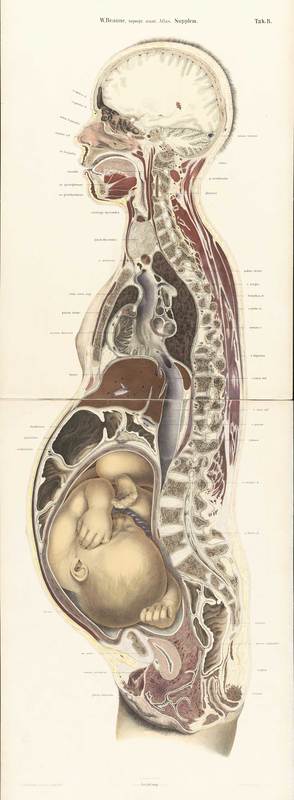 At Home, Arlington, Massachusetts Oh, my mother Eve, why did you bring this chaos into my body? I woke up this morning discouraged and sad, crying from being so overwhelmed with the physical reality that is procreation. And now I just feel this huge, gulfing grief as its full meaning and reality sinks into my consciousness. Things did not have to be these way. Things were not supposed to be this way. Eve, my sister and mother, why did you do this? The effects of your decision, of your sin, hurt in my body. They hurt every day. What should be rejoicing is not – it is the slow grind of nausea, and soreness, and exhaustion. Even the production of life is tainted by the pain which only death brings. In this world, for life to go on, life must be sacrificed. This is the consequence of my mother's actions. The female body is a place of chaos. Once Eve let it in, everything we have striven for is to reduce the effects of chaos within ourselves. Attempts to conceive, attempts not to conceive, attempts to live through childbirth, attempts to ease the pain of childbirth, attempts to understand it and to study – all of this has been woman's collective attempt to regain what was lost in Eden. Just as the apple entered into Eve's stomach, blood stream, and very physical reality, so too did the chaos of separation from God. Many people speak of the brokenness of sin, but let's not forget that brokenness looks and feels like a chaotic mess. A day is coming, though, when the chaotic work of women will be finished. Just as Eve’s digestion of the apple symbolizes the real reality of sin, so too does our digestion of the bread and blood symbolize for us the real reality of Christ’s redemption. Eating is central to our spiritual reality, for it is central to our very lives. Eating, holy and unholy, in the Biblical narrative reminds us of the physical parameters within which we understand both our fallenness and our redemption. Matthew 22:30 says, "For in the resurrection they neither marry nor are given in marriage, but are like angels in heaven." I used to find this passage overwhelmingly sad and I have cried many times to Trey about it. But it is only sad when read according to our post-Victorian romantic sensibilities. It's only sad when marriage is fundamentally about your own self-fulfillment. When it is read through the lens of Genesis 1-3, with an eye to the notion that marriage implies expansion, work, procreation – the establishment of something – then this pronouncement by Christ tells us, "It will be finished." The time of marriage as an act of creation will come to end, and with it, all of the chaos of this fallen reality. My painful work to produce life here on earth will be fulfilled and will be closed. I will not be subject to this chaotic reality for eternity – a change is coming. Eve, the Lord will redeem you. He will redeem your bloody and cursed decisions; he has already redeemed your eating. He will redeem the passing on of such evil through all generations even unto my day. You ruined everything; God will restore it. And I very much look to that day with anticipation. At Home, Arlington, Massachusetts
Well. I'm pregnant. After years of complaining, processing, and thinking about this, here it is. I'm not even sure I comprehend it. Out of nowhere, with no expectations, I'm pregnant. Last week, before I knew it to be a reality and only suspected it, I was peeking around the corner at awe. But this week, now that it is reality, all I feel is the physicality of it. My head hurts, my stomach is weird, and I have never ever felt more fatigued in my life. It's hard to think about awe when your body feels like it's crumpling from within. It is an awe-full thing. It ended up being so easy and so natural – not hard at all. Life taking its course in the most literal of meanings. And that is terrifying. Most of all, I simply find myself once again being scandalized and terrorized by the goodness of God demonstrated in it. God does not scare me when I believe him to be stern or demanding; but, I find him to be absolutely harrowing when he blesses me abundantly. How can such a great God deign to see me? Why would he do such a thing? It is his goodness that slaps the defiance off of my face and leaves me feeling naked and afraid. A God who withholds seems to give me space to raise a fist. A God who freely gives can only be met by my complete submission. For more than two years, I have believed that I was doomed. Maybe I still will be. Maybe I will miscarry and will get the woe I so often believe is rightfully mine. But right now, as new life begins to grow inside my tummy, I feel God laughing at me. Not mocking me, not spiting me, not even shaking his head at me. Just laughing for the joyful mirth of proving my countless wayward doubts wrong. Laughing as a Father laughs with joy over the blunders of his child. Laughing in love. The last three weeks have been some of the most chaotic and miserable of my life. But it feels as if a note has been struck, and its ringing in the air both creates and demands a silence within my heart. Be quiet. Be quiet now. The ripples of this moment will spread forth in waves, but this is a moment of silence. This is a moment to let life lie as it is, to stop, to let be. The Lord is good. And he sits on his throne in heaven. Amen. (Image by Percy French, "Mayo Mermaids.") At Home, Arlington, Massachusetts
Today is a big day for Nation family reproductive history. This is my first day off of the pill. I've been trying to write about the end of using the pill for a few days now, but I just haven't been able to do so until now. It honestly just didn't really register until last night when I went to set my alarm for this morning. I didn't set my 9:00am alarm for the pill and though I haven't set it for a week every month for the last four years, this was what caused the reality to really hit home. I don't intend to really ever set that alarm again. An era of my reproductive life has concluded. Birth control is a funny thing and I've been thinking about it a lot recently. I am deeply thankful for its invention and thankful that I live in a time and age in which I have the option of easily separating sex from procreation for a time. Granted, it does mean that I have been constantly tempted to view those things as fundamentally separated and fundamentally in my control, but I also have had the opportunity to learn the lesson of surrendering my will to God. I get to choose to step into a new role, following the Lord as I do so. This thing – motherhood – is not my own story. I belong to the bigger story of Eve – the story which involves helping and suffering, adoption and heirs, waiting and promises, the Bride and childbirth. I don't get to choose whether I face a reckoning with this story. I live in a time and place in which the world is constantly trying to trick me into thinking that I can escape this story if I want to, that I can wrest this story into being my own, and mine alone. But all women everywhere will stand face to face with their potential, abandoned, lost, or gained motherhood at some point and decide how to engage this story that has always been bigger than our small individual selves. Lord, I am small and I am usually pretty afraid of this story that you have spun into motion. And most days I think that by expelling a baby from my womb, I will inevitably expel my brains along with it. But I am trying, really trying to believe that the story you created is not a harmful story for my person. That you did not make me second rate. That by being a mother, I will not be losing everything you have created me to be. That you have created me to be a self and a mother, and that I do not need to be a mother to be a self. And ultimately, that motherhood was not intended to be a destructive force that shuts down a woman's gifts, talents, and strengths, but rather something that can be wondrous. (Image by Erik Cleves Kristensen, "Mother painting.") At Home, Arlington, Massachusetts
"'But, Sister, you will follow me soon. You don't think any mortal life seems a long thing to me tonight? And how would it be better if I had lived? I suppose I should have been given to some king in the end - perhaps another as our father. And there you can see again how little difference there is between dying and being married. To leave your home - to lose you, Maia, and the Fox - to lose one's maidenhead - to bear a child - they are all deaths. Indeed, indeed, Orual, I am not sure that this which I go to is not the best.' 'This!' 'Yes. What had I look for if I lived? Is the world - this palace, this father - so much to lose? We have already had what would have been the best of our time. I must tell you something, Orual, which I never told to anyone, not even you...' 'What is it?' said I, looking down at her lap where our four hands were joined. 'This,' she said, 'I have always - at least, ever since I can remember - had a kind of longing for death.' 'Ah, Psyche,' I said, 'have I made you so little happy as that?' 'No, no, no,' she said. 'You don't understand. Not that kind of longing. It was on happy days when we were up there on the hills, the three of us, with the wind and the sunshine... Where you couldn't see Glome or the palace. Do you remember? The colour and the smell, and looking across at the Grey Mountain in the distance? And because it was so beautiful, it set me longing, always longing. Somewhere else there must be more of it. Everything seemed to be saying, Psyche come! But I couldn't (not yet) come and I didn't know where I was to come to. It almost hurt me. I felt like a bird in a cage when the other birds of its kind are flying home. '...The sweetest thing in all my life has been the longing - to reach the Mountain, to find the place where all the beauty came from... '- my country, the place where I ought to have been born. Do you think it all meant nothing, all the longing? The longing for home? For indeed it now feels not like going, but like going back. All my life the god of the Mountain has been wooing me... I am going to my lover. Do you not see now-?'" ~~~~~~~~~~~~~~~~~~~~~ I am rereading C.S. Lewis's Till We Have Faces and I've just read the above passage. There are probably no words out there that better describe how I have felt about my life for as long as I can remember. It's not morbid and it's not dark, but I've longed for what Psyche describes for so many years, and it has always been when I am happiest. When I am sad or depressed, I become controlling and feel the need to try to make everything right. But when I am happy, I am ready to be away. Ready to be home. It is the beautiful things in life that often feel the most unbearable. They are all shadows. Last night Trey and I had the most perfect sex we've yet experienced. It was everything I could have ever imagined sexual intimacy being. But if I was given the opportunity to leave now and enter into eternity, I would take it. The beauty of last night makes me ready because I know last night can't be repeated. It was good and whole and perfect – it was release from desiring something better. Now that I've tasted it, I feel satisfied and satisfaction is the end of things, not the beginning. In the above passage, Lewis states a truth that he seems afraid to understand, or at least to state in his other writings on the topic. Sehnsucht is in reality a longing for death. It is a desire for what cannot be obtained in this world when we are confronted with what the world has to offer. Lewis is indeed right when he says that our desires are too small. But if we desire aright, how can that desire be contained by this world? To desire what this world cannot offer is to desire that which requires my departure from this world. I am crying as I write this, but I am not sad. I simply am longing. And that longing aches so greatly. God, I know that, I, as a child of the promise, have you now, here. But I do not have the redeemed world yet. I do not have heaven – complete unity with you. I am still tied down by all of these things around me and when they are good, when they are everything I could ever want them to be, they only make the ache worse, because they only refresh the longing for everything else to be as right as they are in that moment. When Lewis says that marriage, and the loss of virginity, and the bearing of children are all a certain kind of death, I wonder how much he knew he was right on the subject. Did he accidentally stumble upon a truth all women known within their souls? Or did he understand the depths of this statement? Death involves the taking away of life, and for a woman much about the experience of creating life comes through ending some part of her own life. She does not become a wife without giving up independence. She does not become sexually active without being invaded. She does not become a mother without physical destruction in her body. But these all offer life, living, being alive as a result. I have now experienced two of these three things, and I hope soon to enter into the final and third. Might I see in these the same longing for death that Lewis describes with sehnsucht? In each of these experiences, am I not entering into a greater good, a better reality through that which is a kind of death? God, have you created woman so that what she longs for now requires in some parts her negation? Is the pattern of this fallen world so much replicated in my lived reality? When I receive the most good, I long the most for heaven. When I receive the most good, I am the most ready to bear children. But ultimately, to attain both requires a death within me. (Image by Surian Soosay, "Alternate Mother Nature, Internatal Internet.") 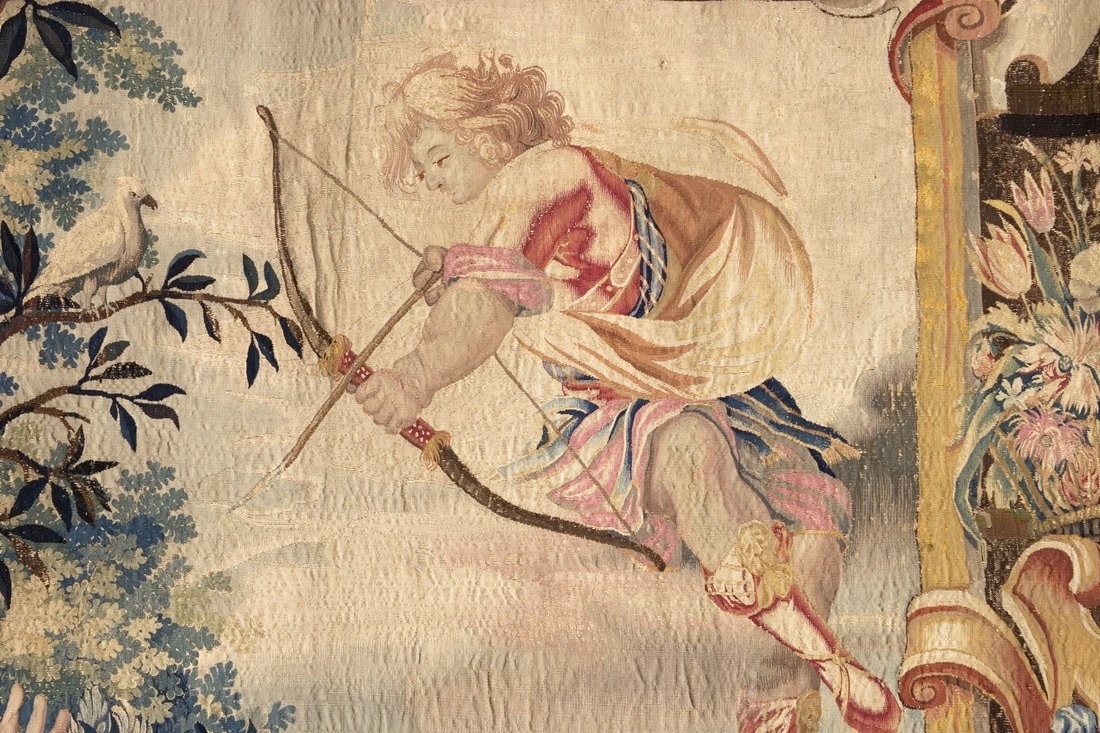 At Home, Arlington, Massachusetts It's 11:30 at night and instead of writing I should be putting in another solid hour of homework before going to bed. But I've had so many thoughts about babies swirling around my head for the last two weeks, and since I haven't given myself time to put words down so far, I figure I'm just going to have to take time away from my C.S. Lewis paper if I'm going to write before these thoughts have faded completely. Where to start... I guess I'll work backwards. Since coming home from Thanksgiving, I've had the happy realization that with the arrival of December I'm now about six months away from going off of birth control and starting what seems like the daunting process of "trying to get pregnant." It's kind of heady to think about it. It's adventurous sounding, and kind of crazy sounding. Which is sad, because shouldn't it just feel natural? It is what our bodies are naturally supposed to do. But then again, maybe God created our bodies to involve a sense of adventure. It also sounds steamy. I couldn't possibly say why, but sex to get pregnant just sounds hot. I know it could start to feel like a task, but I hope it stays exciting. Fingers crossed it's going to be fun. I am really starting to feel ready for this. I'm not ready for parenting, and I sometimes still feel like it will be the end of all I know to be good under heaven, but I'm ready for this next thing. I don't feel baby gaga, but I do feel hopeful. I don't need to be completed, and I'm not bored, but there's a sweetness to it that I'm ready to invite in and take on. While we were home in Pittsburgh, K. came to our party and brought her seven-week old daughter with her. I held her for a long time. I didn't melt and I honestly could have been just as happy talking on the other side of the room, but it was good to be there, holding her. I wish I could come up with some other word to describe it, but I can't think of anything other than "sweetness." It wasn't warm, it wasn't satisfying, it wasn't tender, it wasn’t ovary-provoking, it wasn't holy. It was just sweet. And it was happy. At Home, Arlington, Massachusetts
I'm reading a book for my Jonathan Edwards paper on siblings in colonial America. I love it already. There's so much to chew on in it. An off-hand comment from the author really caused me to pause and think though. She was discussing childbirth rates among the early colonists and in discussing one particular woman as an example, she mentioned her "childbearing career." At first, I was disturbed by this comment; women gave so much in those days to motherhood and everything about their lives was consumed by children. But as I considered the description further, I actually started to really like it, and not just that, but I started to see in it a healthy perspective on childbearing that I need to take on. Childbearing was considered a woman's career. It wasn't just an obligation, or a duty, but it was work on which she embarked and in which she could take pride. She could do it well, or she could do it poorly, just as with any other career. It wasn't so much about her fulfillment, but it could be a great deal about her success and pride. I think many women today would find it vulgar to think of motherhood as a career, but I find it liberating. I love work. I love strategizing about how to succeed and do well in life. I love having my days full with work that has an objective. In many ways, part of the burden of being a mother in my mind has been the need to give this all up. I don't think of having kids as something that will fulfill me – I already feel fulfilled. I don't need children. But if I think about it as work, of motherhood as a career, then it takes on interesting features. It's a project that I can be creative in and with. It's work that has an objective other than my own fulfillment. I don't ever feel the need to have a baby to be happy. But I can get excited about having a baby to create something good. Of course, family is family. It's relationships, not tasks. But I also think it could be healthy for us to remember that it is also work – that bearing and raising children is a career of sorts. And it's not so because it's some special task for women alone. Though part of our career is the physical bearing and feeding of the young, the career of childrearing belongs equally to fathers. When we remember that having children is one career out of many that we undertake, it reminds us that all things exist in unity under the authority of the Creator. Just as our work must always involve relationships, so our relationships often take on the nature of a job. God's cultural mandate did not divide these things – all that God has given us to do intersects and weaves together. (Image by Kuzma Petrov-Vodkin, "Motherhood.") At Home, Arlington, Massachusetts
I just read the most horrifying web post about a woman's vagina being ruined in childbirth. Why. Just... why? And not just why did she write it, or why did I read it, but why does this even happen? No wonder men have had multiple wives or lived outside the confines of the marriage bed for the entirety of history. It's difficult for me to even fathom the depths of sexual suffering that must happen when something like this occurs. For the woman, for her husband, it just seems so nasty. Ultimately it leads me to questions about God and his creation of the world. Is this something natural, something that would have happened in a pre-fallen world? And if so... why? Why would God give women bodies that seem so ready to turn on them at some point in their lives? Maybe if humanity was not fallen, we would be able to properly think about sex and it's place in our lives and we would be able to live contentedly with destroyed vaginas. But then again, everything in the Bible points to sex as a really good thing and one of the central experiences of humanity. Is female suffering fundamental to sex? Apart from modern medical and technological advances, suffering is intimately and intrinsically bound up in the physical experience of sex for a woman. It is not this way for a man. Sure, men deal with sexual frustration and have their own challenges, but those challenges tend to be of a spiritual or emotional nature. A man's physical reality is not consistently trying to kill him or destroy his ability to enjoy sexual activity. I see two alternatives - either this reality for women is the result of sin entering the world, or it is not and therefore has something to tell us about ourselves and about God. I think most people would jump in to say that the suffering intimately wrapped up in female sexuality is a result of sin entering the world. I don't doubt this is partially true. After all, the curse Eve receives seems to pretty explicitly describe a certain kind of suffering that will enter the fabric and reality of womanhood. But unless we think that things somehow altered genetically for women, it's hard for me to accept that the entirety of female physicality altered when Eve stole the apple. Were vaginas somehow larger pre-fall and then shrunk after Eve was cursed? I'm just not so sure about that. It seems to me that God created women and female physicality, female sexuality, with these risks always possible. Yes, something absolutely changed after Eve sinned and as our mother, she has passed the curse on to the eons of her daughters. But I also feel inclined to say that sex always has been, even from the very start, a very different experience for women than for men, and that this is quite possibly how God intended it. Even with all of our advances, women enter into their full sexual identities only at great risk to themselves. This is terrifying and it terrifies me trying to understand the mind of the Lord behind such a design. |
About the ProjectThis is a very personal project. It tracks my growth and development as I journeyed toward motherhood over the recent years. It doesn't document every experience I had, and probably neglects my more joyful and peaceful moments in the frenzy of trying to communicate my fears, anxieties, and doubts. If you are a friend or loved one, please do not let anything you read here overshadow what you know of me personally. If you are a stranger, please remember that a living and flawed person stands behind these words. To all my guests here, please understand these are not political statements and try to extend me grace, even as I share my failures and foibles - I have repented of much of what I share. I don't share this journal as an exemplar, but rather out of the desire to share my hope that entrance to motherhood does not need to be a fearful thing - despite the very real fears I have fought against. Motherhood is simply a part of life and one through which I am discovering more of myself and my God. Archives
May 2017
Categories
All
|
